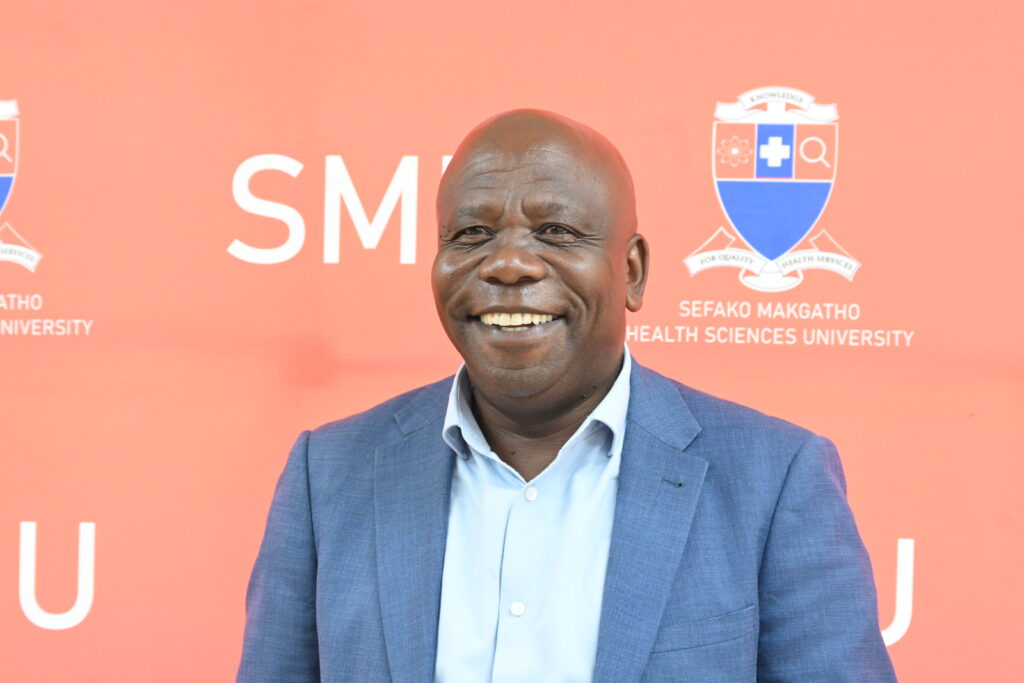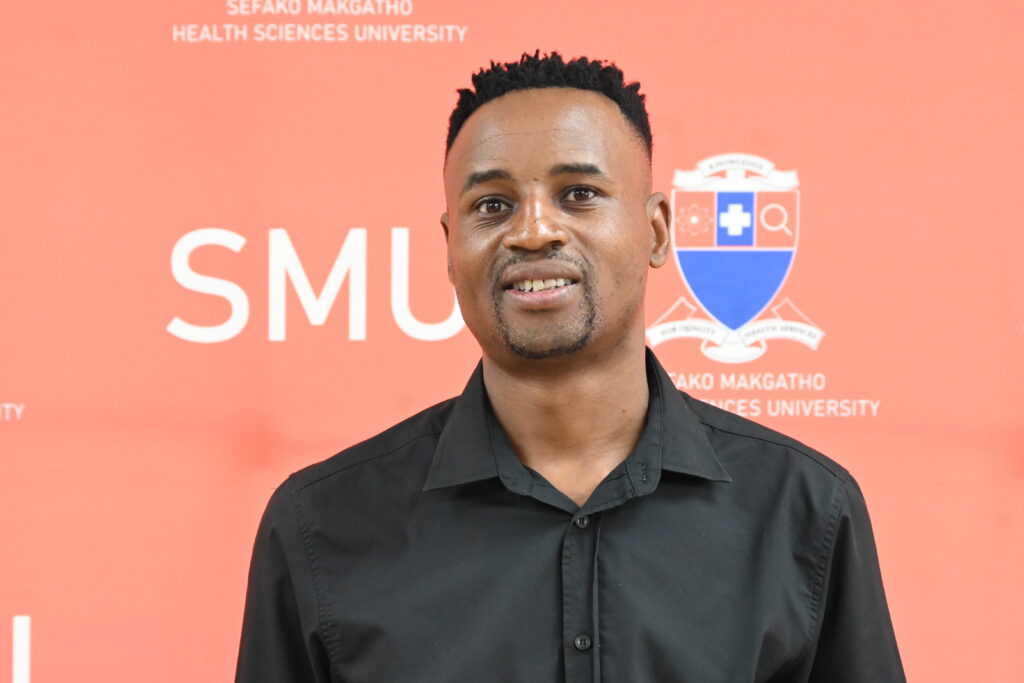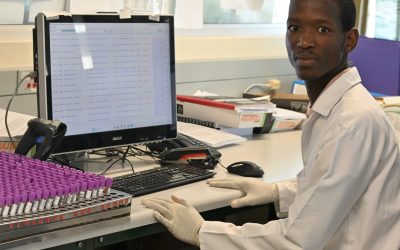As the world navigates the challenges of the Fourth Industrial Revolution (4IR), Sefako Makgatho Health Sciences University (SMU) is at the forefront of harnessing innovation to revolutionise healthcare. As a leading institution in health sciences education and research, SMU is dedicated to translating discoveries into practical solutions that address complex health challenges in South Africa and beyond. Through 4IR technologies, SMU aims to enhance healthcare technology, facilitate technology transfer, and improve health outcomes.
 At the heart of this mission is SMU’s Technology Transfer Office (TTO), established in July 2022, to support staff and students in identifying and protecting intellectual property emanating from their research projects with the ultimate goal of commercialising such innovations. “The TTO was launched to synergise academic research and commercial application,” explains Mohlatlego Sebola, Acting Manager of the TTO. “Our primary role is to facilitate identification and protection of intellectual property through either patents, copyrights, trademarks, and trade secrets and ensuring innovations with potential economic or social application reach the market.”
At the heart of this mission is SMU’s Technology Transfer Office (TTO), established in July 2022, to support staff and students in identifying and protecting intellectual property emanating from their research projects with the ultimate goal of commercialising such innovations. “The TTO was launched to synergise academic research and commercial application,” explains Mohlatlego Sebola, Acting Manager of the TTO. “Our primary role is to facilitate identification and protection of intellectual property through either patents, copyrights, trademarks, and trade secrets and ensuring innovations with potential economic or social application reach the market.”
The TTO aligns with SMU’s broader vision of advancing health sciences research and innovation. “Our work supports SMU’s Strategic Objective 2: Research and Innovation, by identifying, protecting, and commercialising discoveries,” says Sebola.
In its initial years, the TTO faced challenges, including a slow uptake. However, through awareness campaigns and sustained engagement, it has seen an increase in inquiries and invention disclosures. Collaboration has been instrumental in this growth. The TTO partners with SMU’s schools and external stakeholders, engaging in platforms such as the Tshwane Innovation Ecosystem, Gauteng Innovation Forum, and the World Intellectual Property Organization (WIPO)-supported Southern African Development Community (SADC) TTO Mentorship Programme. Recognition of these efforts came in 2024 when the TTO received the prestigious “Southern African Research and Innovation Management Association (SARIMA) Excellent Award on Organisational Growth in Innovation Management” at the Annual Conference in Mozambique.
 The process of securing IP begins with an invention disclosure form, triggering a Pre-Due Diligence process that includes novelty searches and market analysis. If an innovation is deemed patentable, the TTO liaise with one of the patent firms that is part of the university’s panel of law firms to file the necessary paperwork with the Companies and Intellectual Property Commission (CIPC) to protect the innovation. “Protecting intellectual property before publication is essential,” Sebola emphasises. “Researchers are often reluctant to start with protection, thinking this may hinder publication, but in reality, securing IP strengthens credibility and enhances the impact of the publication.”
The process of securing IP begins with an invention disclosure form, triggering a Pre-Due Diligence process that includes novelty searches and market analysis. If an innovation is deemed patentable, the TTO liaise with one of the patent firms that is part of the university’s panel of law firms to file the necessary paperwork with the Companies and Intellectual Property Commission (CIPC) to protect the innovation. “Protecting intellectual property before publication is essential,” Sebola emphasises. “Researchers are often reluctant to start with protection, thinking this may hinder publication, but in reality, securing IP strengthens credibility and enhances the impact of the publication.”
Beyond protection, the TTO also plays a critical role in securing funding. It collaborates with the Technology Innovation Agency (TIA), assisting researchers in applying for the Seed Fund to develop their innovations further. “We help researchers refine their projects, ensuring they are market-ready and appealing to potential investors,” Sebola adds.
Among the TTO’s notable successes in 2024 are three patents, including one from the School of Pharmacy for Raloxifene Hydrochloride Hydrate Solvate, a compound with promising applications in treating postmenopausal osteoporosis and breast cancer. Another significant patent from the School of Medicine is a rapid Hepatitis B core-related antigen (HBcrAg) diagnostic assay, which could revolutionise hepatitis B diagnosis, particularly for occult hepatitis B virus (HBV) cases that current tests fail to detect.
Looking ahead, the TTO aims to strengthen its support for researchers and students, building capacity for innovation and commercialisation. Encouraging early engagement, Sebola urged researchers and students to consider how their work can address socio-economic challenges. “Innovations with real-world applications are more likely to succeed commercially.” The TTO maintains an open-door policy, welcoming inquiries and brainstorming sessions without requiring appointments. “Innovative ideas can emerge at any time,” Sebola says.
Researchers and students are encouraged to visit the TTO at the Clinical Pathology Building (S520) to explore pathways for transforming their research into impactful innovations.
As SMU continues to push the boundaries of health sciences education and research, it is clear that the institution is poised to make a lasting impact on healthcare in South Africa and beyond.
By Tumelo Moila



